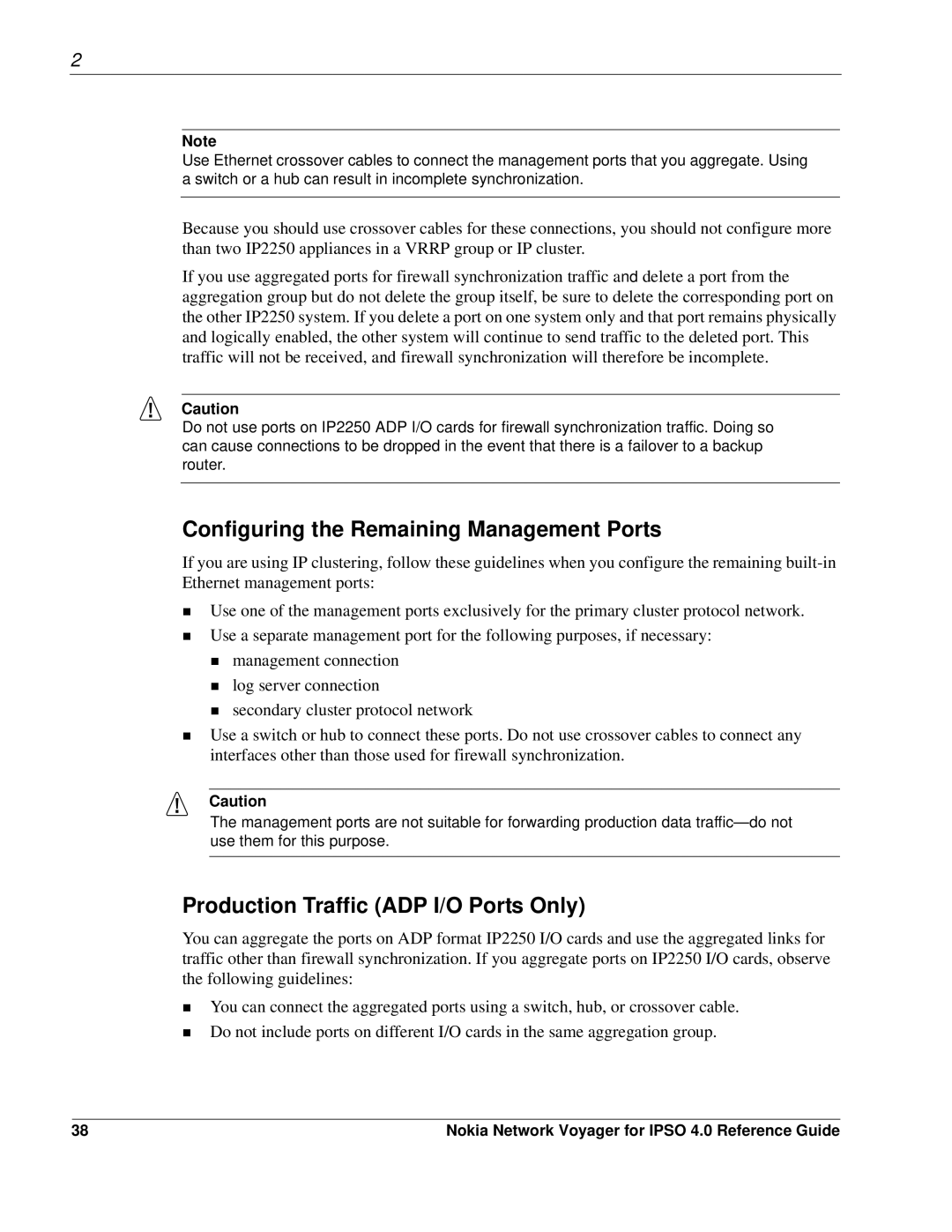
2
Note
Use Ethernet crossover cables to connect the management ports that you aggregate. Using a switch or a hub can result in incomplete synchronization.
Because you should use crossover cables for these connections, you should not configure more than two IP2250 appliances in a VRRP group or IP cluster.
If you use aggregated ports for firewall synchronization traffic and delete a port from the aggregation group but do not delete the group itself, be sure to delete the corresponding port on the other IP2250 system. If you delete a port on one system only and that port remains physically and logically enabled, the other system will continue to send traffic to the deleted port. This traffic will not be received, and firewall synchronization will therefore be incomplete.
Caution
Do not use ports on IP2250 ADP I/O cards for firewall synchronization traffic. Doing so can cause connections to be dropped in the event that there is a failover to a backup router.
Configuring the Remaining Management Ports
If you are using IP clustering, follow these guidelines when you configure the remaining
Use one of the management ports exclusively for the primary cluster protocol network.
Use a separate management port for the following purposes, if necessary:
management connection
log server connection
secondary cluster protocol network
Use a switch or hub to connect these ports. Do not use crossover cables to connect any interfaces other than those used for firewall synchronization.
Caution
The management ports are not suitable for forwarding production data
Production Traffic (ADP I/O Ports Only)
You can aggregate the ports on ADP format IP2250 I/O cards and use the aggregated links for traffic other than firewall synchronization. If you aggregate ports on IP2250 I/O cards, observe the following guidelines:
You can connect the aggregated ports using a switch, hub, or crossover cable.
Do not include ports on different I/O cards in the same aggregation group.
38 | Nokia Network Voyager for IPSO 4.0 Reference Guide |
